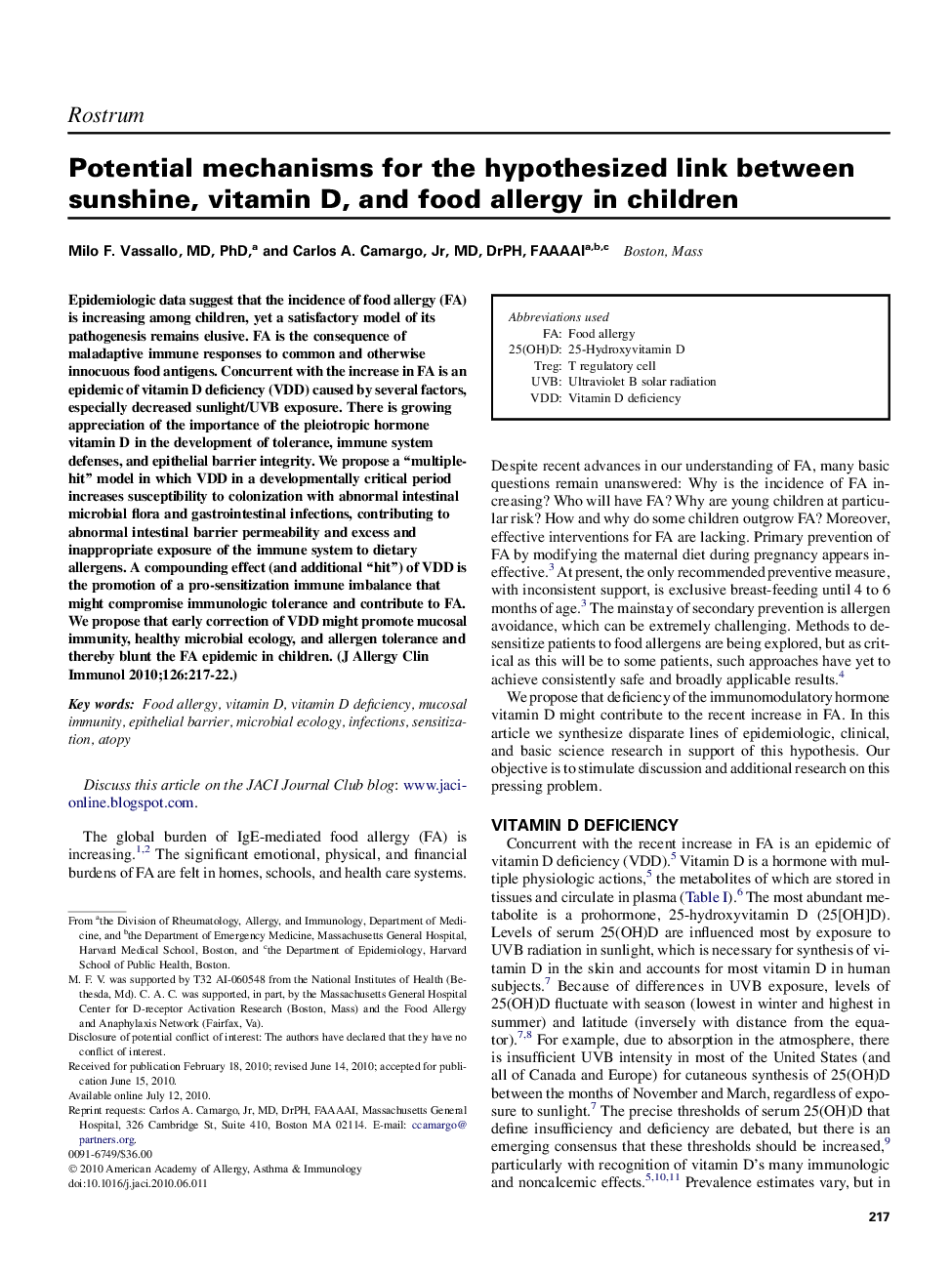| Article ID | Journal | Published Year | Pages | File Type |
|---|---|---|---|---|
| 3200002 | Journal of Allergy and Clinical Immunology | 2010 | 6 Pages |
Epidemiologic data suggest that the incidence of food allergy (FA) is increasing among children, yet a satisfactory model of its pathogenesis remains elusive. FA is the consequence of maladaptive immune responses to common and otherwise innocuous food antigens. Concurrent with the increase in FA is an epidemic of vitamin D deficiency (VDD) caused by several factors, especially decreased sunlight/UVB exposure. There is growing appreciation of the importance of the pleiotropic hormone vitamin D in the development of tolerance, immune system defenses, and epithelial barrier integrity. We propose a “multiple-hit” model in which VDD in a developmentally critical period increases susceptibility to colonization with abnormal intestinal microbial flora and gastrointestinal infections, contributing to abnormal intestinal barrier permeability and excess and inappropriate exposure of the immune system to dietary allergens. A compounding effect (and additional “hit”) of VDD is the promotion of a pro-sensitization immune imbalance that might compromise immunologic tolerance and contribute to FA. We propose that early correction of VDD might promote mucosal immunity, healthy microbial ecology, and allergen tolerance and thereby blunt the FA epidemic in children.
